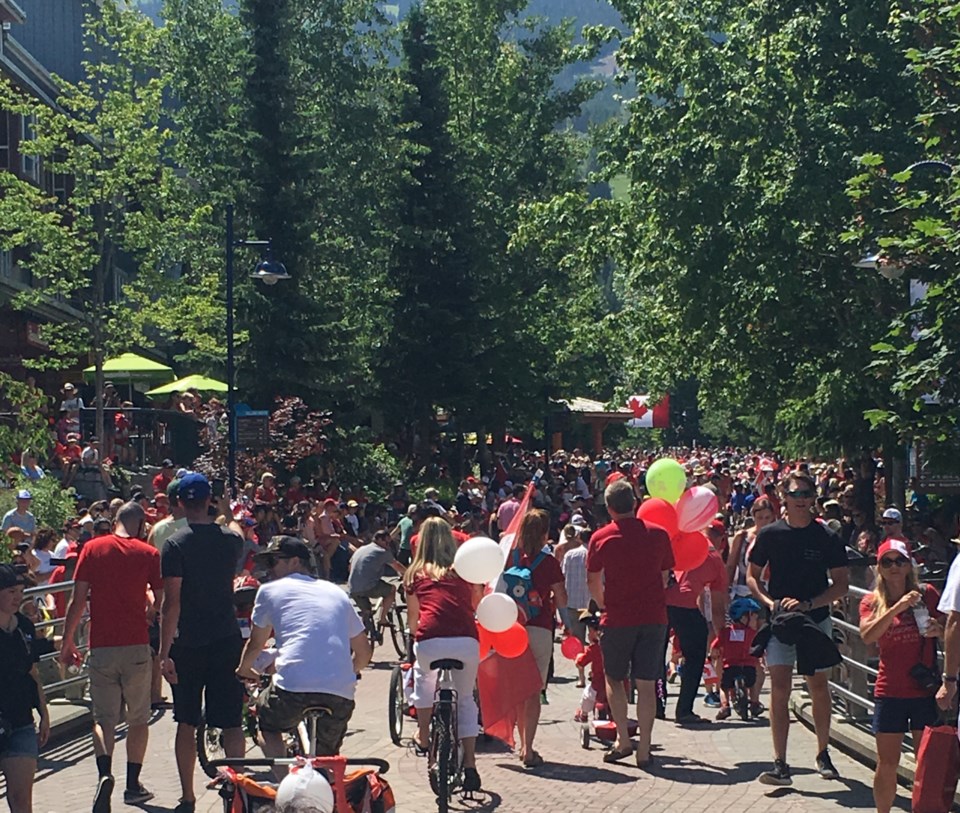With the rediscovery of thousands of graves at residential schools across the country there have been multiple calls to either cancel or rename Canada Day.
Sadly, there is some merit to the idea as Canadians come to grips with our history as sometimes-brutal colonizers of lands that were once in the care of First Nations. There is also a growing recognition that we are the beneficiaries of a genocide that has been going on since Jacques Cartier sailed up the St. Lawrence River looking for a shortcut to Asia. A cloud is hanging over us.
The Canadian genocide has taken many forms over the centuries. There was the accidental (and sometimes deliberate) spread of sicknesses like smallpox that some historians believe wiped out up to 90 per cent of First Nations after first contact. Many of the unmarked graves at residential schools are there because of the unchecked spread of tuberculosis in crowded dormitories.
There has also been a kind of geographical genocide where First Nations were separated from each other and pushed into isolated reserves that have not offered much in the way of opportunities, services, or even necessities like clean drinking water.
These actions were then followed by a wider cultural genocide and the attempts of various nation builders to “westernize” First Nations. That approach gave rise to a residential school system where children were taken from their parents, sometimes neglected or abused by their caregivers, and forced to abandon their culture.
Driving all of this is a relentless economic genocide where resources that First Nations had claim to were taken and sold without much—if any—benefit going back to the people who never legally ceded their rights to the land.
There aren’t many countries on the planet that don’t have horrible histories involving war, genocide, slavery, religious persecution, or various forms of racial/cultural/sexual exploitation. But Canada is different in that we’ve never honestly acknowledged all the uncomfortable truths that made it all possible. The fact that so many people are only learning about residential schools today reveals a serious and obviously deliberate gap in our education system.
What Canada does to right these wrongs is what is ultimately going to define us as a nation in the future. Being great starts with being good.
Our shameful treatment of First Nations is just one example of Canada’s seldom-explored darker side. There’s the Komagata Maru; the heartless decision to send the MS St.Louis with 900 Jewish refugees back to Europe and into the path of Nazis; internment camps; a ban on black immigrants in the early 1900s, and racial segregation that persisted as late as the early 1980s in some parts of Canada. This is a country where one in five children is living in poverty, despite being one of the wealthiest nations on the planet. We’re also increasingly known on the world stage for wolf culls, the seal hunt, and logging of old-growth forests.
None of this easily squares with the sunny image that we’ve constructed for ourselves over the years.
However, despite the sad facts of our origin story, I don’t think Canada Day should be cancelled or renamed. I would rather see it remade into a day of reckoning, the day where we honestly acknowledge our history and pledge meaningful actions to right past wrongs. The reality is we can’t move forward as a united country, the country we aspire to be, until we put our ghosts to rest.
It matters if we want peace and progress at home and on the world stage as well. It’s incredibly hard to criticize a country like China for its recent human rights abuses when they can so easily throw our own situation back in our faces. We lost the high ground that we never really deserved.
The first step forward is for real representation. In New Zealand—a country that has its own complex history with First Nations but is ahead of us in many ways—there are a guaranteed seven seats in Parliament for native Maori representatives. We need to do something similar here with at least a few dozen seats in the house and guaranteed representation on Parliamentary committees and in the senate. We need to repeal and replace the Indian Act with a modern law that both recognizes title and gives First Nations the benefit of taxes and resource fees collected on their traditional territories. We also need to start renaming things their original names—and teach those names to future generations. Nobody calls it “Ayers Rock” anymore, it’s Uluru. Mt. Everest is Sagarmatha. That’s how reconciliation works.
In New Zealand, everyone also knows the Maori words to the Haaka and national anthem. By now, we should all know at least a few words of our local First Nations dialects.
We need to address intergenerational trauma with real reparations and support. Right now, Canada’s First Nations are often treated as second-class citizens, living in third-world conditions. That has to change.
Let Canada Day 2021 be the day where we finally acknowledge our past, embrace the challenge of reconciliation, and start the hard work it’s going to take to make Canada into a country that everyone—and I mean everyone—can be genuinely proud of.
This story has been updated to include the name of the MS St. Louis.




